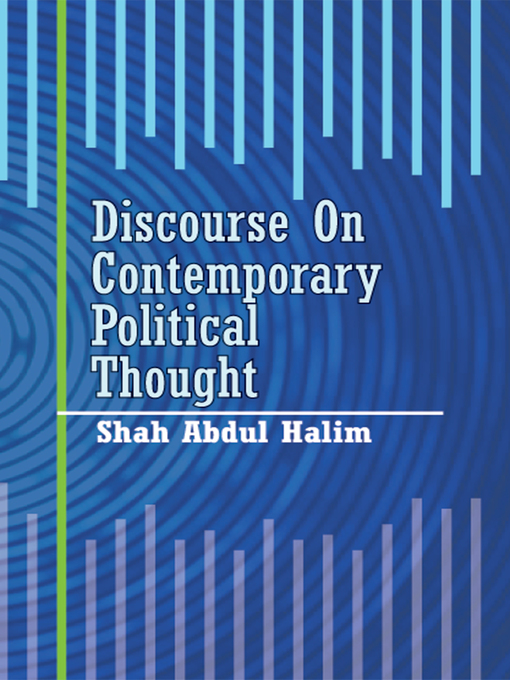Political Thought is a developing subject. It is explained by different people differently keeping the historic-political background and socio-cultural milieu in their perspective. Different political models, therefore, have emerged in different parts of the world. Now is the time to acquaint people with various models and developments that have taken place in the contemporary discourse on political thought.
Not much work, however, has been done on the Islamic political thought. A great deal of confusion exists among the people about the real nature of Islamic political thought. In 'Discourse on Contemporary Political Thought' author Shah Abdul Halim, an eminent political scientist of Bangladesh, has focused on different aspects of contemporary political thought. Issues discussed, inter alia, include the critical question whether Islam is compatible with democracy or not, theocratic state, man's sovereignty vis-à-vis sovereignty of Allah, dar al harb and dar al islam– abode of war and peace, jiziah- tax imposed on non-Muslims, hudud– capital punishment, apostasy, jihad– struggle for self-defense or war of aggression, participation of women in politics, and many other issues.
In fact, it was a long felt necessity to present before the readers outside the research on Islamic political thought done in Bangladesh for it is important to share such development with the intellectuals, academicians, ulama- scholars associated with the religious seminaries, political scientists and Islamists, who want to develop political models in their respective countries. The ideas and concepts about Islamic polity developed in some parts of the world need to be shared so that others can develop these concepts further keeping in view the idiosyncrasy, plurality and diverse cultural background, heritage and history of their countries.
The ideas and concepts presented in this book will, no doubt, help remove some of the misunderstanding existing among the traditional Islamic scholars, particularly among the ulama- religious scholars, who pass edicts, on one hand; and hopefully will also erase some of the prejudices existing among a section of the modern progressive secular mind particularly among the elite on the other.
The book will also expose the hollowness and futility of the binary attitude of a section of the pundits who look from a biased, unfair, dogmatic, rigid and inflexible attitude which is the outcome of deep rooted chauvinism
Now that an e-edition of the book has been made available, it will benefit the general readers worldwide in comprehending many hitherto unexplained subjects. Hopefully, this book will be useful for the teachers and students of Oriental Studies.
